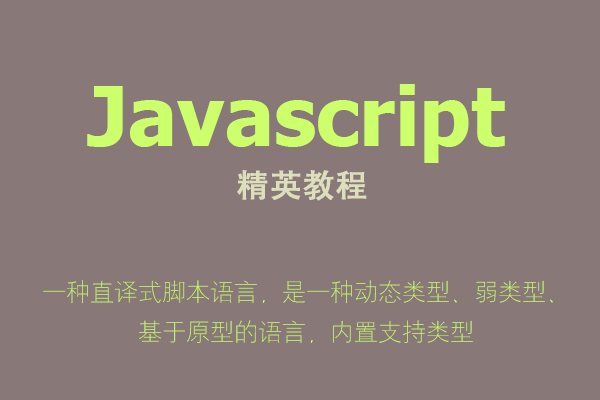无论是PHP,还是其他的服务端脚本都提供了文件上传功能,实现起来也比较简单。而利用javascript来配合,即可实现Ajax方式的文件上传。虽然JQuery本身没有提供这样的简化函数,但有不少插件可以实现。其中,phpletter.com提供的ajaxfileupload.JS是一个轻量的插件,而且编写方式与jQuery提供的全局方法$.post()非常相似,简单易用。
不过,该插件实在太简化了,除了可提供需上传文件的路径外,也就不能传递额外的值到后台服务端。所以,我修改了一下该脚本,增加个一个data对象参数。
一、原理
我这里使用的是PHP作为服务端脚本,几乎在每本较少PHP的书上都会提到如何使用move_uploaded_file()方法来上传文件,这里我就不再细说了。我想说的是,利用Ajax上传的原理。
因为一直在使用jquery库,所以当想到Ajax时,第一反应就是试试$.post()方法,利用各选择器得到file文件框中的value值,然后提交到后台服务端。当然,后来证明这是不行的。(正因为这问题,我还查了不少资料,网上还提供了不少ASP等方式的脚本,真不知道该说什么好。。)
回到正题,要实现Ajax方式上传,其实并不难,方法也有不少。而本文提到的Phpletter.com的ajaxfileupload.js插件就是使用iframe的方式。这也是在不使用JavaScript脚本时,要实现不刷新页面上传时常见的方法。(本博客bo-blog后台撰写日志就是用该方法)
而ajaxfileupload.js插件也很简单,就是先利用jquery的选择器获得file文件上传框中的文件路径值,然后动态的创建一个iframe,并在里面建立一个新的file 文件框,提供post方式提交到后台。最后,返回结果到前台。
二、使用
ajaxfileupload.js插件的使用很简单。
前台html代码类似:
<script type="text/Javascript"> $(#buttonUplod).click(function () { $.ajaxFileUpload ({ url:'doajaxfileupload.php', //你处理上传文件的服务端 secureuri:false, //与页面处理代码中file相对应的ID值 fileElementId:'img', dataType: 'json', //返回数据类型:text,xml,JSON,HTML,scritp,JSONP五种 success: function (data) { alert(data.file_infor); } }) }); </script> <input id="img" type="file" size="45" name="img" > <button id="buttonUpload" onclick="return ajaxFileUpload();">Upload</button>
后台doajaxfileupload.php脚本:
<?php
$upFilePath = "../attachment/";
$ok=@move_uploaded_file($_FILES['img']['tmp_name'],$upFilePath);
if($ok === FALSE){
echo json_encode('file_infor'=>'上传失败');
}else{
echo json_encode('file_infor'=>'上传成功');
}
?>
$file_info = var_Export($_FILES,true);
$ok = file_put_contents("../attachment/file_info.txt",$file_info);
if ($ok) exit(json_encode('file_infor'=>'上传成功'));
exit (json_encode('file_infor'=>'上传失败'));
※ 注意
请留意HTML代码文件框中的标记:
1. id='img'是用于给ajaxfileupload.js插件的fileElementId:'img'识别的,JQuery选择器会利用该字符串获得文本框的值;
2. name='img'是用于通过post方式提交到后台脚本时,PHP通过$_FILES['img']读取上传文件的数据,若没有该值,$_FILES变量为空;
所以,这两个值缺一不可,也不可混淆。
三、支持额外参数
有时候,我们需要在后台根据某些变量来觉得对上传文件的处理。例如,更新文件。这时,就需要往同台再传递一些额外的参数。所以,我修改了ajaxfileupload.js插件:
addOtherRequestsToFORM: function(form,data) { // add extra parameter var originalElement = $('<input type="hidden" name="" value="">'); for (var key in data) { name = key; value = data[key]; var cloneElement = originalElement.clone(); cloneElement.attr({'name':name,'value':value}); $(cloneElement).appendTo(Form); } return form; }, ajaxFileUpload: function(s) { // TODO introduce global settings, allowing the client to modify them for all requests, not only timeout s = jQuery.extend({}, jQuery.ajaxSettings, s); var id = new date().getTime() var form = jQuery.createUploadForm(id, s.fileElementId); if ( s.data ) form = jQuery.addOtherRequestsToForm(form,s.data); var io = jQuery.createUploadIframe(id, s.secureuri);
红色标记部分是我添加的内容。这样,我就可以在前台HTML部分,通过类似下面的代码来传递额外的参数:
url:'doajaxfileupload.php', //你处理上传文件的服务端
secureuri:false, //与页面处理代码中file相对应的ID值
data:{'test':'test','ok':'ok'}, //以对象的方式传递,内容部分可输入javascript的变量值
fileElementId:'img',
后台处理脚本为:
Array_push($_FILES,$_REQUEST); $file_info = var_export($_FILES,true); $ok = file_put_contents("../attachment/file_info.txt",$file_info); if ($ok) exit(json_encode('file_infor'=>'上传成功')); exit (json_encode('file_infor'=>'上传失败'));
可见,原理很简单,就是把额外的data对象内容一同加到iframe下的form中,传递到后台PHP脚本,以$_REQUEST等变量获得这些值。
后台输出保留的file_info.txt内容如下:
array (
'file' =>
array (
'name' => 'firefox-java.txt',
'type' => 'text/plAIn',
'tmp_name' => 'D:\\Tools\\xampp\\tmp\\phpED45.tmp',
'error' => 0,
'size' => 250,
),
0 =>
array (
'test' => 'test',
'ok' => 'ok',
'PHPSESSID' => 'e379fd4fb2abca6e802a1302805a5535',
),
)
ajaxfileupload.js:
jQuery.extend({
createUploadIframe: function(id, uri)
{
//create frame
var frameId = 'jUploadFrame' + id;
if(window.ActiveXObject) {
var io = document.createElement('<iframe id="' + frameId + '" name="' + frameId + '" />');
if(typeof uri== 'boolean'){
io.src = 'Javascript:false';
}
else if(typeof uri== 'string'){
io.src = uri;
}
}
else {
var io = document.createElement('iframe');
io.id = frameId;
io.name = frameId;
}
io.style.position = 'absolute';
io.style.top = '-1000px';
io.style.left = '-1000px';
document.body.appendChild(io);
return io
},
createUploadForm: function(id, fileElementId)
{
//create form
var formId = 'jUploadForm' + id;
var fileId = 'jUploadFile' + id;
var form = $('<form action="" method="POST" name="' + formId + '" id="' + formId + '" enctype="multipart/form-data"></form>');
var oldElement = $('#' + fileElementId);
var newElement = $(oldElement).clone();
$(oldElement).attr('id', fileId);
$(oldElement).before(newElement);
$(oldElement).APPendTo(form);
//set attributes
$(form).CSS('position', 'absolute');
$(form).css('top', '-1200px');
$(form).css('left', '-1200px');
$(form).appendTo('body');
return form;
},
addOtherRequestsToForm: function(form,data)
{
// add extra parameter
var originalElement = $('<input type="hidden" name="" value="">');
for (var key in data) {
name = key;
value = data[key];
var cloneElement = originalElement.clone();
cloneElement.attr({'name':name,'value':value});
$(cloneElement).AppendTo(form);
}
return form;
},
ajaxFileUpload: function(s) {
// TODO introduce global settings, allowing the client to modify them for all requests, not only timeout
s = jQuery.extend({}, jQuery.ajaxSettings, s);
var id = new date().getTime()
var form = jQuery.createUploadForm(id, s.fileElementId);
if ( s.data ) form = jQuery.addOtherRequestsToForm(form,s.data);
var io = jQuery.createUploadIframe(id, s.secureuri);
var frameId = 'jUploadFrame' + id;
var formId = 'jUploadForm' + id;
// watch for a new set of requests
if ( s.global && ! jQuery.active++ )
{
jQuery.event.trigger( "ajaxStart" );
}
var requestDone = false;
// Create the request Object
var xml = {}
if ( s.global )
jQuery.event.trigger("ajaxSend", [xml, s]);
// Wait for a response to come back
var uploadcallback = function(isTimeout)
{
var io = document.getElementById(frameId);
try
{
if(io.contentWindow)
{
xml.responseText = io.contentWindow.document.body?io.contentWindow.document.body.innerHTML:null;
xml.responseXML = io.contentWindow.document.XMLDocument?io.contentWindow.document.XMLDocument:io.contentWindow.document;
}else if(io.contentDocument)
{
xml.responseText = io.contentDocument.document.body?io.contentDocument.document.body.innerHTML:Null;
xml.responseXML = io.contentDocument.document.XMLDocument?io.contentDocument.document.XMLDocument:io.contentDocument.document;
}
}catch(e)
{
jQuery.handleError(s, xml, null, e);
}
if ( xml || isTimeout == "timeout")
{
requestDone = true;
var status;
try {
status = isTimeout != "timeout" ? "success" : "error";
// Make sure that the request was successful or notmodifIEd
if ( status != "error" )
{
// PRocess the data (runs the xml through httpData regardLess of callback)
var data = jQuery.uploadHTTPData( xml, s.dataType );
// If a local callback was specified, fire it and pass it the data
if ( s.success )
s.success( data, status );
// Fire the global callback
if( s.global )
jQuery.event.trigger( "ajaxSuccess", [xml, s] );
} else
jQuery.handleError(s, xml, status);
} catch(e)
{
status = "error";
jQuery.handleError(s, xml, status, e);
}
// The request was completed
if( s.global )
jQuery.event.trigger( "ajaxComplete", [xml, s] );
// Handle the global AJAX counter
if ( s.global && ! --jQuery.active )
jQuery.event.trigger( "ajaxStop" );
// Process result
if ( s.complete )
s.complete(xml, status);
jQuery(io).unbind()
setTimeout(function()
{ try
{
$(io).remove();
$(form).remove();
} catch(e)
{
jQuery.handleError(s, xml, null, e);
}
}, 100)
xml = null
}
}
// Timeout checker
if ( s.timeout > 0 )
{
settimeout(function(){
// Check to see if the request is still happening
if( !requestDone ) uploadCallback( "timeout" );
}, s.timeout);
}
try
{
// var io = $('#' + frameId);
var form = $('#' + formId);
$(form).attr('action', s.url);
$(form).attr('method', 'POST');
$(form).attr('target', frameId);
if(form.encoding)
{
form.encoding = 'multipart/form-data';
}
else
{
form.enctype = 'multipart/form-data';
}
$(form).submit();
} catch(e)
{
jQuery.handleError(s, xml, null, e);
}
if(window.attachEvent){
document.getElementById(frameId).attachEvent('onload', uploadCallback);
}
else{
document.getElementById(frameId).addEventListener('load', uploadCallback, false);
}
return {abort: function () {}};
},
uploadHttpData: function( r, type ) {
var data = !type;
data = type == "xml" || data ? r.responseXML : r.responseText;
// If the type is "script", eval it in global context
if ( type == "script" )
jQuery.globalEval( data );
// Get the JavaScript object, if JSON is used.
if ( type == "json" )
eval( "data = " + data );
// evaluate scripts within html
if ( type == "html" )
jQuery("<div>").html(data).evalScripts();
//alert($('param', data).each(function(){alert($(this).attr('value'));}));
return data;
}
})







网友评论文明上网理性发言 已有0人参与
发表评论: